AudioCulture
The noisy library of New Zealand music
Te pātaka korihi o ngā puoro o Aotearoa
Doug Jerebine
aka Jesse Harper
After becoming disillusioned with the music industry, he opted for a more spiritual path in India where he donned the saffron robes of a monk and disappeared from public life for over 30 years.
The legend of Jesse Harper
His brief brush with rock and roll fame fuelled urban legends back in his native New Zealand, where the results of his only recording session fell into the hands of top New Zealand guitarist Harvey Mann. Seven of his tracks were subsequently recorded by underground rock unit The Human Instinct.
Doug Jerebine had featured in backing bands for local and international tours and was a sought after studio musician working with the rising stars of the time.
Back in New Zealand under his real name, Doug Jerebine had featured in backing bands for local and international tours and was a sought after studio musician working with the rising stars of the time: Tommy Adderley, Lou and Simon, Judge Wayne, Allison Durbin, Maria Dallas, Dinah Lee and The Chicks.
The guitar style he originated lived on in the backing tracks of many of New Zealand’s popular hit songs of the 60s, through the radio programmes he recorded with Bob Gillett’s New Zealand Radio Orchestra and his membership in the experimental supergroup The Brew.
Spotlight on Dargaville
At eight years old Jerebine had built his own valve radio set and shown a strong interest in music. His grandparents bought him and his sister Anna a ukulele for Christmas and by the time she had learned the first three chords had already graduated to guitar.
The pairing of Mike Perjanik on piano accordion and Jerebine on acoustic guitar won a school talent quest in Dargaville at the age of 12, then formed their first band the Spotlites, which won third place in a Joe Brown talent quest in Auckland at the dawn of the 1960s.
Perjanik was the first to leave for Auckland, ending up in a band with the great Ricky May on drums before hooking up with The Embers at the newly opened Shiralee nightclub in Auckland. When Embers guitarist Johnny Willets left, Perjanik insisted Jerebine, now apprenticed as a radio electrician in Dargaville, was the man for the job.
Soon The Embers, featuring Mike Kelly on drums, John “Yuk” Harrison on bass, Perjanik on keyboards, Will Schneider on sax and Jerebine on guitar, were working six nights a week, taking full advantage of the Shadows style instrumentals that were hugely popular at the timer.
Recognising the skill and style of Jerebine’s guitar playing, producer and record company boss Ron Dalton began pushing him to the front of the unit, promoting him as New Zealand’s answer to Hank Marvin.
While other record labels were promoting singers, Dalton and Viking Records encouraged him to develop original material. His first contribution was the instrumental single, 'Metropolis'. The Embers’ second album was The Embers Dig Doug, with a cover photo taken at the Mt Eden quarry. “Stomp, Twist! Jive! To the guitar moods of Doug Jerebine and The Embers,” read the liner notes.
When The Embers folded, Jerebine became Tommy Adderley’s personal guitarist for club and touring work. Inbetween times he would join his old band mate Mike Perjanik and his trio working for television, backing top local acts and as the core players for international tours including Gene Pitney and Sandy Shaw and Pretty Things.
Looking for a challenge
Doug gigged around Auckland with several bands including the Claude Papesch Trio but was always looking for musicians who would challenge him and help him explore the depths of music. He met his match in veteran saxophonist Bob Gillett from Santa Ana, California, who hooked him up with the 18-piece New Zealand Broadcasting Service band, backing some of New Zealand’s top artists.
In 1967, the two friends formed a band that recorded two songs for a Tea Council promotion 'Tea For Two' and 'Bengal Tiger', appropriately calling themselves The Brew. The unit, featuring a rich line up of top players, ultimately ended up with a residency at The Picasso, a rough public bar style venue where most sane music lovers never dared to venture.
There was something about that challenge that bought out the best in The Brew. At various points in its evolution it included Tommy Ferguson and Ray Woolf on vocals, Puni Solomon and Yuk Harrison on bass, Charles Grey and Bruno Lawrence on drums and Harvey Mann on guitar.
The sight of Doug Jerebine experimenting with the sitar was certainly worth the risk of curious musos and their friends braving the scrutiny of the locals at The Picasso to become regulars checking out the sounds of this unpredictable band.
Jerebine had picked up his interest in sitar music from Raman Shiva in Mt Eden. “He taught me a few ragas – it was child’s stuff, the sort of thing they would teach children in India. I had loved Indian music and raga for a long time so it was a natural progression. They were so expressive, sweet and meditative.”
It was his strong interest in Indian music and mysticism that urged Doug Jerebine to visit England and see what eventuated before heading on to India.
London calling
Before leaving for England Jerebine fronted up to The Human Instinct's drummer Maurice Greer, who was also about to head back to the UK with his new band featuring Billy TK on guitar, and offered to play bass with them.
Greer decided to stick with his existing trio featuring Peter Barton on bass. "Because we were dealing to teenagers I wanted a young handsome guy on the bass. I was too busy thinking about how we would look. Musically though it was the wrong move," says Greer.
Jerebine changed his name to Jesse Harper, took solo work, began writing songs and filling in for a couple of top groups.
Ironically when Jerebine arrived in England he teamed with The Human Instinct’s former guitarist Dave Hartstone, who was now running a band agency and sound hire company. At Hartstone’s suggestion Jerebine changed his name to Jesse Harper, took solo work, began writing songs and filling in for a couple of top groups.
His ill-fated US tour with the Jeff Beck Band saw him swapped out for Ronnie Wood after a fall out over sound levels so he joined up for a short stint with Motown performers Junior Walker & the All Stars.
Back in London Jerebine continued to work on songs for the new album using two Revox tape recorders left behind by The Human Instinct the year previously when they spent 18 months working the UK circuit.
Dave Hartstone was impressed with the demos and booked studio time while Jerebine began looking for a rhythm section. He ended up playing everything himself except for the drums. Rumours that Jimi Hendrix and his manager Chas Chandler dropped by to admire Jerebine’s unique sounds are flatly denied by Jerebine.
Mesmerising album
When The Human Instinct arrived in 1969 for a second crack at the UK scene, drummer and singer Maurice Greer dropped in see Hartstone, who’d built his business around their old Marshall stacks, amps and PA system. Greer was surprised to find Jerebine living in his old flat and was mesmerised by the new album. “He was a strong influence on me, he planted something in my head.”
Maurice was first introduced to Jerebine in Wellington by Tommy Adderley. “He wore a suit, short back and sides and had a full bodied cut-away Gibson. He looked really straight but he had the coolest sound. There was something about the way he flicked the guitar, half choking the strings without quite making it ring.” They met again a few years later by which stage his hair was in a big ponytail down his back and he “looked like a beatnik”.
After The Human Instinct returned to New Zealand, Dave Hartstone reckoned he had scored a big deal for the release of Jerebine’s album. He’d played it down the phone to Ahmet Ertegün, head of Atlantic Records in New York and was offered a contract on the spot.
Hartstone chose the wrong person to accompany Jerebine on the trip to New York to sign off on the deal – a Mafia-connected heavy.
However Hartstone chose the wrong person to accompany Jerebine on the trip to New York to sign off on the deal – a Mafia-connected heavy who had a serious bust up with Led Zeppelin’s manager Peter Grant over the management of Jeff Beck. Ertegün, learning of this, failed to show and Jerebine’s first shot at international stardom ended there.
Back in London several days later, Hartstone received a phone call warning him to bow out of the band agency game. If he wanted to retain the business of Jeff Beck, Led Zeppelin and the other big names he was to stick to providing sound equipment.
Jerebine continued to jam with top musicians around London including progressive blues group Andromeda, “Fuzzy” Samuel from Stephen Stills’ Manasses, saxophonist Roland Kirk and drummer Lenny White. He eventually teamed up with a core group including New Zealand drummer Mike (Flea) Donnelly, who’d been with The Soul Agents in Auckland.
How to end a career
As The World Band they played tracks from Jerebine’s “demo” album and created their own brand of sweeping progressive rock anthems. EMI records was impressed and wanted to sign them. At EMI’s London headquarters the deal was about to be signed when the big boss offered whiskey and cigars all round to celebrate.
Jerebine had become something of a prude in his search for a higher path. He was insulted by the suggestion and rejected the icons of greed, putting an end to the deal by walking out of the EMI offices.
While he was almost disowned by the members of The World Band, they were aware that without Doug, they wouldn’t have much to go on. They were asked to play in Holland and accepted accommodation at a squat house, performing regularly at outdoor gigs in Amsterdam.
Division over lifestyle continued to split the band and eventually Jerebine shaved his head and was off to join the Krishna movement.
Meanwhile the music of Doug Jerebine was already having an impact in the New Zealand musical community. Jerebine had sent a copy of his demo album back to Bob Gillette and Harvey Mann and it soon began to influence Harvey Mann’s dound and his input into classic New Zealand band The Underdogs.
Instinct’s new repertoire
Maurice Greer took a tape copy and had Human Instinct learn the tracks on the boat back to New Zealand. They recorded seven of Jerebine’s songs on their next two albums including 'Blues News', 'Midnight Sun', 'Idea (Keep Cool)', 'The Jug-a-jug Song (Ain’t so Hard To Do)', 'Fall Down' and 'Ashes and Matches'.
'Fall Down', 'Idea', 'Ashes And Matches' and 'Midnight Sun' were re-recorded featuring guitarist Joel Haines at Revolver Studios in Auckland in 2000, which ended up on The Human Instinct Midnight Sun album, eventually released on Ode Records in 2009.
Apart from the cover versions on The Human Instinct albums, the Jerebine London sessions didn't see the light of day until 1994.
Apart from the cover versions on The Human Instinct albums, the Jerebine London sessions didn't see the light of day until 1994 when British label Kissing Spell got hold of a copy of the acetate from John du Cann (aka John Cann) of Andromeda, who founded UK rock band Atomic Rooster.
The resulting LP, released without the permission of Jerebine or Hartstone (who owned the mechanical rights), was called Guitar Absolution in the Shade of the Midnight Sun. The cover and first pressing of the CD on Kissing Spell featured the 16th century painting The Agony in the Garden by El Greco. A remastered version made available by Kissing Spell in 2002 featured extensive liner notes but replaced the cover art.
Doug Jerebine returned to New Zealand briefly in the early 90s – as well as attending to Krishna business he spent time with his mother trying to uncover his family heritage. To his sister, who he stayed with for two weeks, he was just plain old Doug. “We didn’t talk about the Krishna thing much but I know I couldn’t eat meat for months after he stayed. He really made me think,” said Anna.
Jerebine also caught up with former musical associate and friend Bob Gillett. Gillett says journalists had contacted him on several occasions seeking to understand more about the elusive Jerebine but he refused to supply information. “I hated all the attempts to show Doug as a drug addict, a womaniser or a common kind of person. I don’t want to have anything to do with that. You hear elaborate second hand stories about all the goings on and it’s totally untrue.”
An influential LP
Doug didn’t know his 1969 album had been released until he obtained a copy of a Kissing Spell re-release on CD early in 2002. “I had thought it was long lost in oblivion.” On listening to it after 32 years he says “the sheer spirit of it” blew him away. Fortunately he found no fault in the liner notes, partially written by myself (Keith Newman), essentially confirming they were accurate (whew).
Recording, as well as singing, was not something he was particularly fond of at the time. His goal was to find musicians he could play with in a live situation but he had difficulty finding such kindred spirits. “I threw the album together on the insistence of Dave Hartstone, in the hope that later I could find some musicians of my ‘own niche’. Sadly, I never really did.”
Asked what his feelings were about the music scene that was so much of his life back in the 60s, he described this period as a distant memory.
“I was a child then really. I left that world a long way behind. I didn’t play music for about thirty years. It was my profession and I was happy with it but there was too much godlessness. I tried to become a man of God. It wasn’t necessarily as a reaction, it was my calling, I suppose.”
He says he was always a searcher for musical purity, an idealist, always dissatisfied with himself, particularly musically. His retrospective views on the sex, drugs and rock and roll lifestyle have changed little since he gave up his promising career in 1972 and disappeared in India.
“I think it damages everyone. But I was predominantly interested in music, not drugs or any hedonistic lifestyle. I think, therefore, that I was probably ‘saved’. I saw music as a spiritual practice, a meditation, particularly when I played the sitar.”
The influence of Doug Jerebine aka Jesse Harper’s one solo album, has had a huge impact on the New Zealand music sound. You can hear his musical DNA in the riffs of Harvey Mann, Eddie Hansen and Billy TK; in the sounds of The Human Instinct, Ticket, Space Farm, Living Force and of course The Underdogs.
A further extensive conversation was recorded with Doug Jerebine, who is now addressed as Maharaj or teacher, early in 2008 and used as the basis for a Radio New Zealand National Musical Chairs programme.
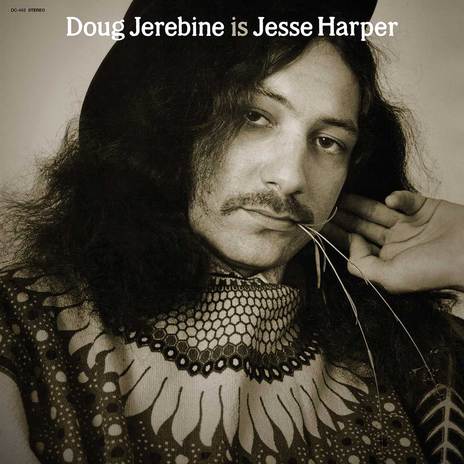
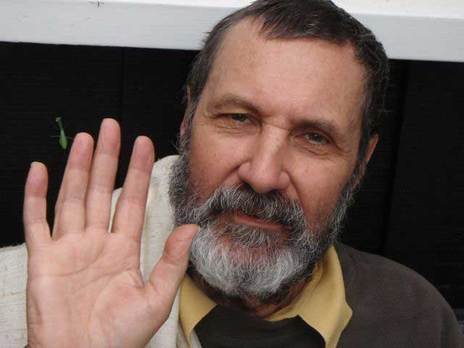
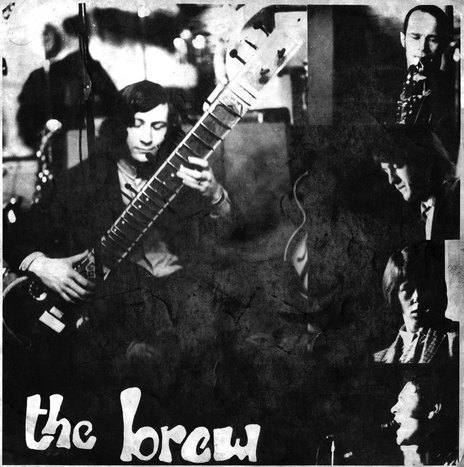
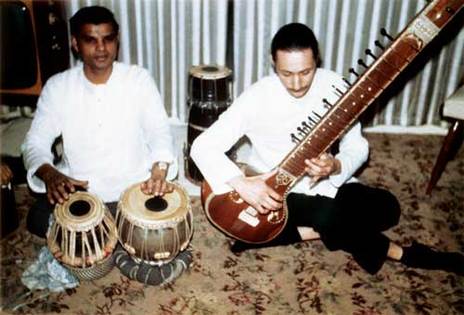
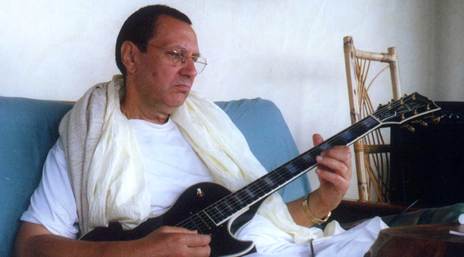
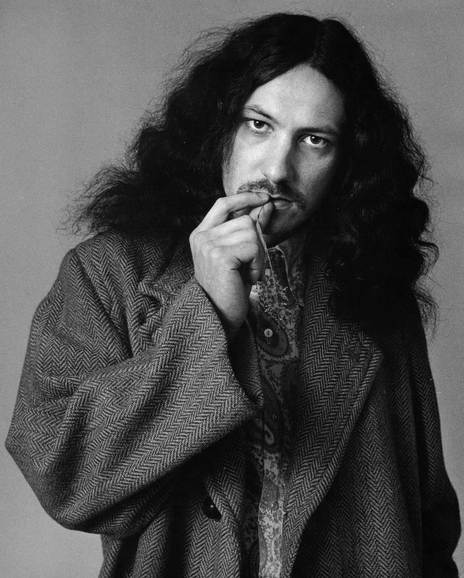
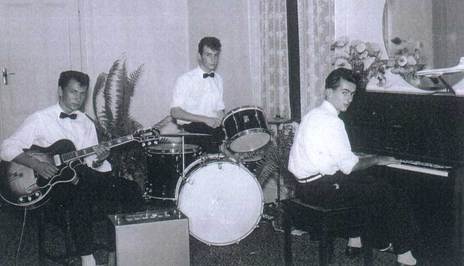
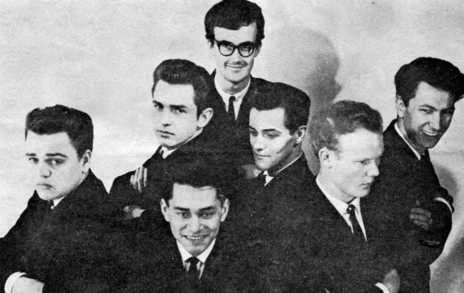
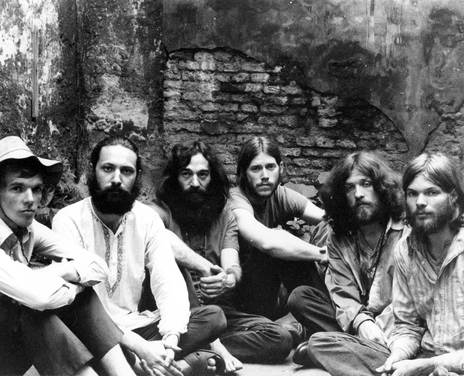
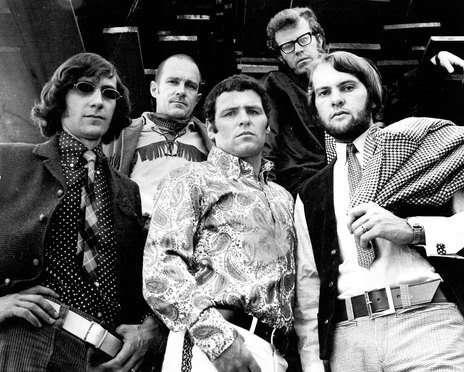
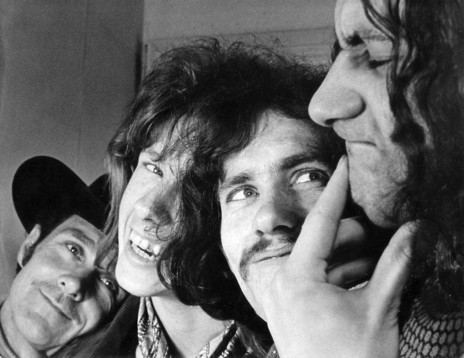
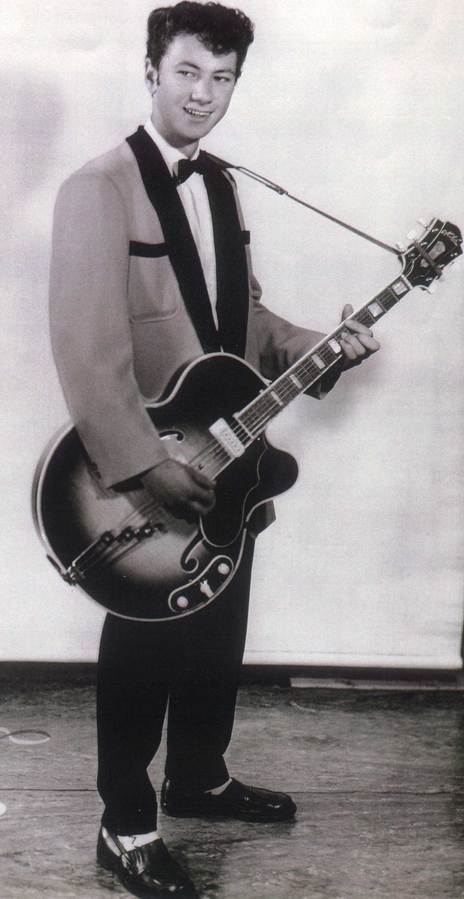
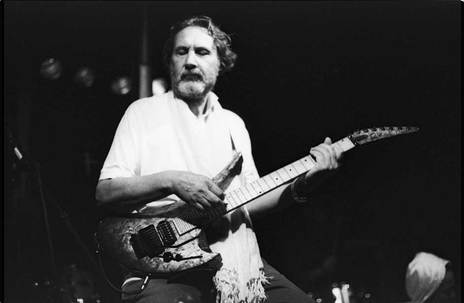
Visit our sister site
NZ On ScreenMade with funding from
NZ On Air